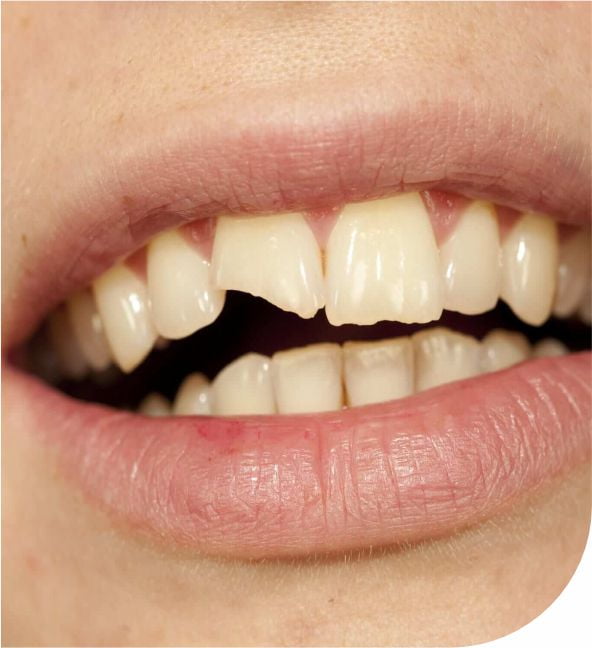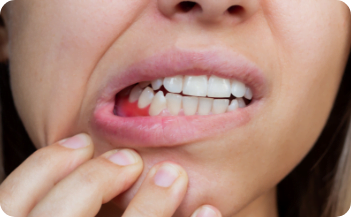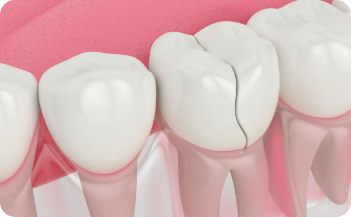AIRDRIE'S TOP DENTAL EMERGENCIES CENTER DENTAL EMERGENCY
- We are committed to providing you with the best experience.
- Billing your insurance directly
- Both new and urgent patients
- NO-COST consultations
- Availability for late hours and weekends
Get The Best Emergency Dental Care in AIRDRIE
Are you in pain? Do you have a toothache? Did you chip a tooth in an accident?
First of all, don’t panic. Just reach for the phone and call our emergency dentists in Airdrie. Let us know what happened and we’ll let you know what you ought to do next. In most cases, you’ll want to get to Airdrie Springs Dental as quickly as possible. Tell us that you’re on your way so that we can have everything ready when you arrive.
Manage Your Pain
A throbbing toothache can be extremely painful. Over the counter anti-inflammatories such as ibuprofen can help to reduce discomfort and swelling. Consider using a cool compress on the side of your face, and alternate it with a warm compress if swelling is present.

How to Handle a Broken Tooth
If you’ve broken or knocked a tooth out, never handle it by the root. Pick it up gently by the crown (the visible part of the tooth when you smile) and rinse away any visible debris. Although you may feel compelled to scrub it clean, avoid doing so because it can remove the microscopic fibers that allow us to save your tooth!
One of the best places to keep your broken or knocked out tooth is tucked inside of your cheek so that your saliva keeps it lubricated. For some people (especially children,) this isn’t an option. The next best thing is to put your tooth in a cup of contact solution or milk. Get to our Airdrie emergency dental clinic within one hour!
Airdrie Emergency Dentist Near your
TMJ/TMD THERAPY Therapy For TMJ Disorder
If frequent headaches and jaw pain are a normal part of your life, you might want to ask our Airdrie dentists if you have TMJ disorder or TMD. During your exam, we’ll assess your jaw function and bite to see what could be contributing to your jaw pain.
Botox for TMJ?
Did you know that Botox isn’t just used for cosmetic dentistry purposes? It can also be an effective solution to managing your TMJD pain. The solution naturally relaxes your overactive muscles to ease tension and overuse, providing relief for up to three months between injections.
Don’t Forget Your Bite!
It may come as a surprise, but the way your teeth bite together plays a huge part in the function of your TMJ. If your teeth are improperly aligned or the upper and lower jaw does not close together properly, your jaw must compensate when you’re biting and chewing food. Day after day, these repeated joint movements strain your inner joint and the surrounding muscular tissues.
Aligning your teeth and jaws through orthodontic therapy (braces) may be a viable solution for reducing your TMJ problems. Once a proper occlusion (bite) is established, your jaw can work more efficiently with less effort. Although the change is gradual, orthodontic treatment can play a huge role on your long-term comfort.
Consider Wearing a Splint
Some of us have a natural habit of biting and clenching our teeth together (bruxism). It may be due to stress during your commute home from work, or even while you’re sleeping at night. This extra tension strains your TMJ and muscles, triggering overuse and pain. A bite splint can relax your jaw and retrain the muscles so that you’re not using them so much.
What Is a Dental Emergency?
Dental emergencies occur more frequently than you might think. Many dental problems, however, are not emergencies, but rather dental issues that have gone untreated and are causing pain and inflammation.
A missing tooth, a toothache, a chipped tooth, or issues with dental crowns are all serious dental problems, but they are not necessarily emergencies. It’s good to learn what constitutes a dental emergency and what steps to take if an accident occurs and immediate dental care is required.
Common Dental Emergencies
Here are the most common dental emergencies, as well as what you should do until you can see a dentist.

Unexplainable Toothache
Toothaches are more than just a nagging pain that should be ignored. They are your body's way of alerting you to the fact that something is wrong in your mouth. When you have sudden and unexplainable tooth pain, seek the assistance of a qualified emergency dentist to help diagnose and treat the problem.

Gums That are Swollen or Bleeding
Although minor gum irritation is not a dental emergency, bleeding gums, especially if accompanied by pain and swelling, can indicate an urgent, underlying dental or health problem. It is not normal to have bleeding gums without a clear cause. If you have any of these symptoms, you should see your dentist right away.

Swollen Jaw or Mouth
If your mouth or jaw suddenly becomes swollen for no apparent reason, it's time to see an emergency dentist for immediate treatment. You could have an infection, irritation to your lymph nodes, or another factor that requires immediate professional dental care.

Broken Crown
When a dental crown breaks or falls off entirely, your tooth is left exposed and vulnerable to infection and damage. You may avoid the need for a root canal, extraction, or other dental procedure if you schedule an emergency dental visit to replace the crown.
Signs of Emergency Dental Care
Call our Airdrie emergency dentist near you for your urgent dental needs.
01
You’ve got a suddenly loose tooth.
02
Your toothache is severe.
03
Your gums are bleeding and ache.
04
You have a swollen jaw.
05
You’ve got a dental abscess.
06
Your canker sore isn’t getting better.
07
You’ve got constant headaches.
08
Your tooth went numb.
09
Your mouth tastes like metal.
Why Choose Airdrie Springs Dental As Your Emergency Dentist for All Your Urgent Dental Needs?
Airdrie Springs Dental specializes in a wide range of treatments including cosmetic dentistry, implants, implant-retained dentures, and emergency dental issues. We have modern dental hygienist chairs and state-of-the-art facilities.
Emergency dentistry is one of the many dental services we offer to our patients. If you’re looking for a new dentist in Airdrie, you’ve come to the right place! We look forward to serving you and your family. Call us and book a dental appointment today!
FAQs on Dental Emergency
If your tooth is broken, make sure you don’t brush it, and make an appointment to see your dentist as soon as possible. Your dentist will discuss the best method of repairing the break, which could be one or a combination of fillings, crowns, or root canal treatments.
- Ensure that you practice good oral hygiene.
- Use fluoride toothpaste and mouthwash.
- Watch what you are eating and drinking.
- Learn healthy ways to manage your stress.
- Seek treatment for dental pain quickly.
You will double your daily treatment time if you only wear your invisible aligners at night., For example, a treatment plan that you were supposed to finish in a year has suddenly grown to take two years, and maybe much more, if you don’t wear the aligners during the daytime
If there’s something caught between your teeth, you can do the following.
- Rinse your mouth.
- Gently floss the debris away.
- Carefully try a wooden toothpick.
Baby tooth loss due to injury occurs more frequently than you might think. Pediatric dentists are frequently contacted by concerned parents in this situation. In most cases, there is no need to panic, but it is important to see your dentist as soon as possible—for both lost baby teeth and chipped or loose teeth.
Your best bet is to save the tooth and bring it immediately to the dentist. Alternatively, they can have a tooth implant placed instead, which will require a consultation with their family dentist.
If you have pain or swelling, you can try using a cold compress (such as a cold pack) against the side of your face. This will help reduce swelling and provide tooth pain relief. Wrap the ice pack in a cloth before placing it against your skin.
The nerves, blood vessels, and supporting tissues are all damaged when a tooth is knocked out. Because nerves and blood vessels cannot be repaired, all avulsed teeth will require a root canal. However, once the tooth is replaced, the bone can reattach to the root. The chances of saving a tooth are highest for young children, but adult teeth can also be saved. Only natural teeth should be re-implanted. After a tooth has been knocked out, it is critical to see a dentist as soon as possible.
The first thing you should do if you lose a filling is contacted your dentist and inform them of the situation. If your filling falls out on the weekend, call the dentist’s office’s emergency number.
Your dentist has several options when helping you resolve this issue:
- You may get a new filing
- You may need a crown, root canal, or cap
- You might need a tooth extraction
While the jawbone heals, you’ll need to eat a soft or liquid diet. More severe fractures necessitate surgery. Your doctor or nurse practitioner may:
- For several weeks, wire the upper and lower jawbones together to keep the broken bones in place.
- Apply metal plates to the fractured area to aid in bone healing and fusion.

